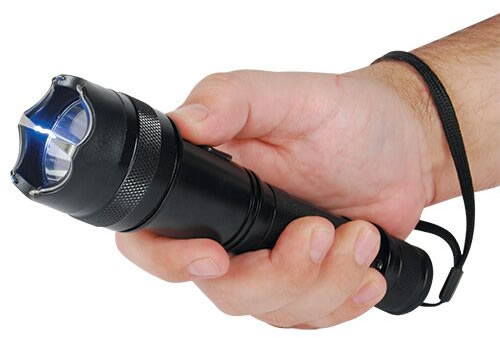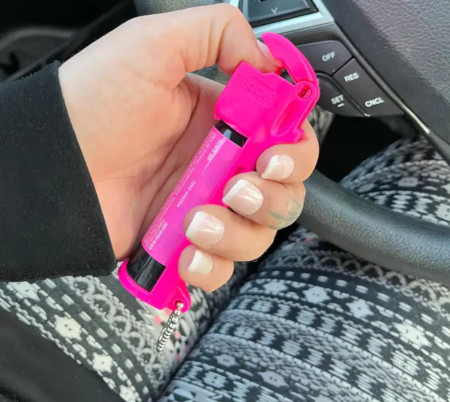Being Aware of Your Surroundings: Essential Tips for Personal Safety

Stay Alert, Stay Safe
Being aware of your surroundings is your first line of defense against potential threats. Many people believe danger only exists in high-risk areas, but the truth is, risks can emerge anywhere—even in familiar spaces. Awareness isn’t just about watching your back; it’s about staying one step ahead of danger.
At TBOTECH, we provide self-defense tools to help you stay safe, but awareness is the foundation of all personal security strategies. The more alert you are, the better you can anticipate, avoid, or react to potential threats. This guide will teach you how to heighten your awareness and integrate self-defense products into your safety plan.
Why Situational Awareness is Crucial for Self-Defense
Imagine walking alone at night while texting on your phone. You don’t notice the person trailing behind you until they’re too close for comfort. Distractions can make you an easy target. Being aware means actively observing your environment, identifying potential threats, and taking proactive measures to keep yourself safe.
Key Benefits of Staying Alert:
-
Recognize potential threats early – Spot unusual behavior before it escalates.
-
Avoid risky situations – Change routes, enter safer areas, or call for help.
-
React faster – Awareness gives you precious seconds to respond effectively.
The most effective self-defense tools work best when combined with strong situational awareness. Carrying pepper spray is great, but it’s even more powerful if you spot a threat before it reaches you.
Training Your Senses for Maximum Awareness
You don’t need military training to develop sharp awareness. Simple exercises can train your eyes, ears, and instincts to detect potential threats before they become problems.
1. Visual Awareness Training
-
When entering a room, identify exits and note who looks out of place.
-
Walk in well-lit areas and scan your environment every few steps.
-
Exercise: Spend 30 seconds observing your surroundings, then close your eyes and recall as many details as possible.
2. Sound Recognition for Safety
-
Train yourself to notice footsteps behind you or voices changing in tone.
-
Remove distractions: Avoid using earbuds or loud music in vulnerable settings.
-
Exercise: Close your eyes in a public place and count how many unique sounds you can identify.
3. Trust Your Instincts
-
If something feels off, it probably is. Trust your gut.
-
If you sense someone following you, cross the street or enter a public place.
-
React quickly: Your intuition is a powerful early-warning system.
Want to sharpen your perception skills? Check out our guide on Becoming More Observant for Personal Safety.
How to Visually Scan Your Environment for Safety
Being observant isn’t about paranoia—it’s about strategic awareness. Here’s how to read your environment like a security expert:
1. Watch People’s Behavior
-
Is someone loitering without a clear purpose?
-
Do they seem too interested in you or keep changing directions to stay near you?
-
Are they fidgeting, glancing around nervously, or hiding their hands?
2. Identify Exits and Safe Zones
-
Whenever you enter a building, locate all exits.
-
Choose seating that allows you to see the entire room and any incoming people.
-
Example: When using an ATM, choose one with clear visibility and escape routes.
3. Avoid High-Risk Areas
-
Dimly lit streets, isolated stairwells, and unattended parking garages can be dangerous.
-
Walk against traffic so cars can’t easily pull up beside you.
-
Avoid getting boxed in—always have a path to escape.
Sound Awareness: Listening for Danger Signals
Your ears can pick up threats before your eyes do. Stay tuned to sounds that indicate potential danger:
-
Unusual footsteps behind you
-
Sudden silence in a previously noisy area
-
Shouting or sudden changes in tone
-
Car engines idling too long near a sidewalk
Being prepared means reacting before an incident occurs. Carrying a personal alarm can startle attackers and alert bystanders if you’re in trouble.
Self-Defense Tools to Enhance Your Safety
Being alert is your first defense. But having the right tools can level the playing field in a crisis.
1. Pepper Spray: Fast & Effective
A simple, compact, and legal self-defense tool that can incapacitate an attacker from several feet away.
Mace® Personal Model Hot Pink
-
Best for: Outdoor settings, runners, college students
-
How to use: Aim for the eyes and spray while creating distance
-
Example: The Mace® Hot Pink Personal Model is small, powerful, and easy to carry.
2. Stun Guns: Close-Range Defense
Delivers an electric shock to disable an attacker.
-
Best for: Those comfortable with hand-to-hand engagement
-
How to use: Press against the attacker’s torso or limb for 3+ seconds
-
Example: The Runt Stun Gun combines stun gun power with ease of carry.
3. Personal Alarms: Attention-Getters
-
Emits an ear-piercing 130+ decibel alarm to scare off attackers.
-
Best for: Anyone who wants a quick, passive deterrent.
-
Example: Ideal for college students, elderly individuals, and night-shift workers.
4. Tactical Flashlights: Multi-Purpose Protection

-
Bright LED temporarily blinds attackers.
-
Can be used to signal for help.
-
Example: The Shorty Stun Flashlight combines a bright beam with stun gun capabilities.
5. Strike-n-Spray Double Defender: Dual Protection
A compact, easy-to-carry tool that combines an impact weapon with powerful pepper spray for a two-in-one self-defense solution.
-
Best for: Those who want a close-contact and ranged defense option.
-
How to use: Use the striking end for physical defense and deploy pepper spray for added stopping power.
-
Example: The Strike-n-Spray Double Defender is small, effective, and easy to grip in high-stress situations.
Final Thoughts: Build Awareness into Your Daily Routine
Being aware of your surroundings isn’t about living in fear—it’s about being prepared. Confidence is the key to deterrence, and a strong presence makes you a harder target.
-
Scan your surroundings whenever you enter a new area.
-
Limit distractions like excessive phone use or loud music.
-
Carry self-defense tools and be prepared to use them.
Stay alert, stay safe, and stay in control. For more self-defense tools and expert safety advice, explore our selection at TBOTECH.com.
If you're looking for advanced strategies to assess potential threats, our Situational Awareness Guide covers proactive techniques.
Add your comment now!
Post CommentRecent posts
-
06/27/2025Personal Safety Devices for Women
-
06/27/2025Can You Bring Pepper Spray on a Plane?
-
06/27/2025Are Butterfly Knives Illegal?


